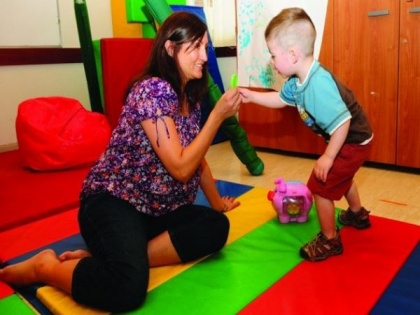Adopting self-care benefits caregivers of children with FASD
By ANI | Published: February 5, 2020 07:51 PM2020-02-05T19:51:44+5:302020-02-05T21:45:07+5:30
Fetal alcohol spectrum disorders (FASD) or the physical and mental damage in a child due to alcohol exposure while in the womb, is a major public health problem affecting around 2 to 5 per cent of school-aged children in the United States finds a new study.

Adopting self-care benefits caregivers of children with FASD
Fetal alcohol spectrum disorders (FASD) or the physical and mental damage in a child due to alcohol exposure while in the womb, is a major public health problem affecting around 2 to 5 per cent of school-aged children in the United States finds a new study.
FASD affected children often face lifelong developmental, cognitive and behavioural problems. However, children are not the only ones who struggle, often their parents and caretakers do, too. What can make the job of parenting a child with the disorder especially hard is the general lack of awareness surrounding FASD and the dearth of available resources.
The new study, led by a team of University of Rochester researchers and published in the journal Research in Developmental Disabilities, examines how FASD caregivers' perceived confidence in and the frequency of self-care is related to stress, parenting attitudes, and family needs.
This paper is the first to describe caregiver strategies for self-care and the obstacles and barriers parents face in raising their children while trying to care effectively for themselves.
Stress can have a direct bearing on family cohesion, as well as the caregivers' mental and physical health. That's why, according to experts, self-care for parents is a critical resource.
The study's lead author Carson Kautz is working on interventions to reduce the adverse outcomes for children with developmental disabilities, particularly FASD, together with her faculty mentor and recognized FASD expert Christie Petrenko, an assistant professor and research associate at the University's Mt. Hope Family Center.
"Of course, stress reduction is important for all parents," acknowledged Jennifer Parr a graduate student at the University's Warner School of Education and a project coordinator and therapist at Mt. Hope Family Center who is part of the study.
"But it's especially critical in caregivers of children with special needs, given that we know of their already high-stress levels," Parr said.
Based on interviews and questionnaires given to 46 caregivers of children with either an FASD diagnosis, or confirmed prenatal alcohol exposure, the researchers checked for child behavioural problems, parental stress levels, and grouped the various self-care strategies (such as practicing yoga, maintaining physical health, engaging in hobbies, and treating oneself to small luxuries) into seven categories.
In the collected data, caregivers reported greater confidence in their ability to use self-care, reported reduced parental distress, higher family needs being met, and greater parenting satisfaction.
( With inputs from ANI )
Open in app